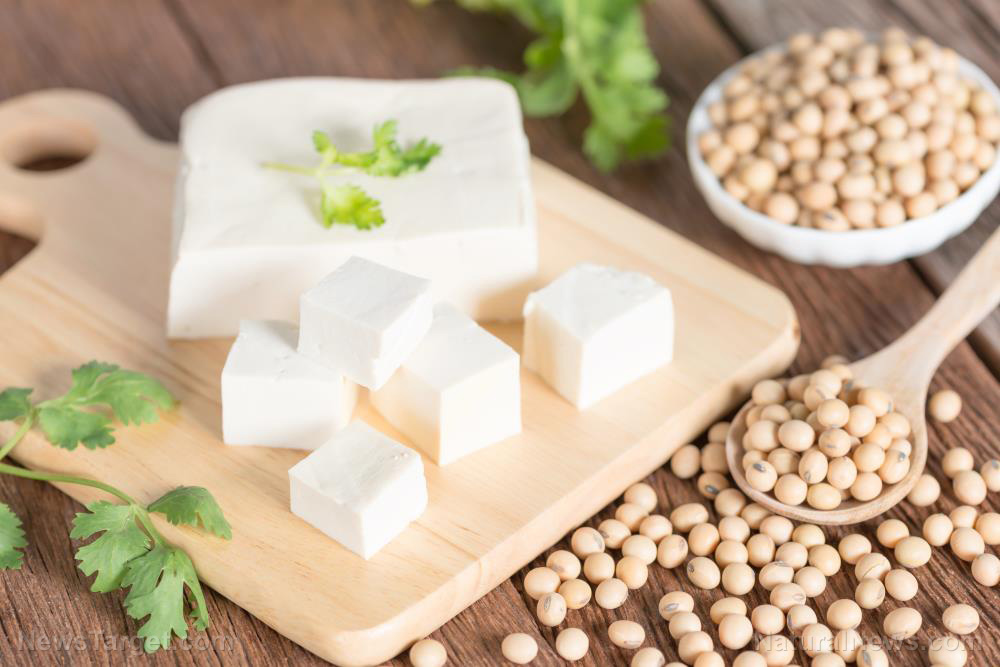A place for the radish at your dinner table: The vegetable can help manage symptoms of diabetes and even cancer
04/08/2019 / By Michelle Simmons

Radish (Raphanus sativus) is an edible root vegetable from the Brassicaceae family. It varies in shape, size, and color. In the U.S., it is typically red, round, and the size of a golf ball, with a shiny and white interior. In most parts of Asia, the daikon variety – a long, white root – is much more common. Radish has many potential health benefits, such as:
- It provides many nutrients: Radish contains vitamins A, C, K, niacin, folate, choline, calcium, magnesium, phosphorus, potassium, and manganese. It also contains protein and fiber. In addition, it does not have saturated fat or cholesterol content.
- It aids in digestion: Radish contains fiber, which adds bulk to your fecal waste to help it move faster through the intestines. An animal study has shown that the leaves of radish provide fiber which helped improve gastrointestinal functions. Other studies have also reported that its juice can protect the gastric tissues and strengthen the intestinal barrier. As a result, this could help protect the digestive organs from harmful pathogens and toxic chemicals that cause stomach ulcers.
- It detoxifies the body: Radish has a diuretic effect that may help detoxify the body by promoting liver function. When the liver is healthy, it can purify the blood and eliminate toxins and wastes from the body well. Some studies have also shown that this vegetable may be beneficial to people with jaundice as it stabilizes bilirubin levels in the blood. In addition, it helps increase oxygen levels in the blood, minimizing further damage to red blood cells.
- It helps people with diabetes: Researchers at the University of Allahabad in India have suggested that people with diabetes can get many benefits from eating radishes. In their study, they found that radish roots can help regulate blood sugar levels and protect against diabetes without causing harmful side effects.
- It helps the respiratory system function well: Eating a radish can also help relieve congestion in the respiratory tract, including the nose, windpipe, throat, and lungs. Radish also acts as a disinfectant and has antioxidants that can help prevent respiratory infections. It may also relieve sore throats and eliminate excess mucus from the airways.
- It may ward off cancer: Like other cruciferous vegetables, radish also has cancer-fighting properties because it contains cancer-fighting agents like vitamins, folic acid, and anthocyanins. It is also rich in isothiocyanates, which are compounds that help eliminate carcinogenic substances in the body and prevent the development of tumors. These compounds also promote apoptosis, or cell death, in certain cancer cell lines, according to a study in Plant Foods for Human Nutrition.
- It prevents osteoarthritis: Adding radish to your diet can help prevent osteoarthritis, a condition that occurs when the cartilage between the joints and the underlying bone break down over time. This benefit can be attributed to the vegetable’s vitamin C and calcium content. Vitamin C helps form collagen, which makes the cartilage stronger, and fights against free radical damage that can harm the cartilage. On the other hand, calcium aids in the formation and strengthening of the bones.
- It treats urinary problems: Drinking radish juice can boost urine production and flush out the kidneys. These can help fight infections of the urinary tract, such as the kidneys and bladder. Radish also has anti-inflammatory properties that can help ease the burning sensation you may sometimes feel while urinating. (Related: The radish is linked to cardiovascular, urinary health, among other benefits.)
Adding radish to your diet
Across the globe, radishes are grown mostly during winter. They make a great addition to your diet, especially during winter, because they exude a lot of heat. The best time to eat radish is during the day, when your metabolism is at its peak. Because of its high fiber content, it may take some time to digest it at night, which can make leave you burping and feeling full even in the next morning. You can add radish to your diet by roasting, poaching, and frying them. You can also use them in salads and soups.
The power of the elements: Discover Colloidal Silver Mouthwash with quality, natural ingredients like Sangre de Drago sap, black walnut hulls, menthol crystals and more. Zero artificial sweeteners, colors or alcohol. Learn more at the Health Ranger Store and help support this news site.
Visit FoodIsMedicine.com to learn more about other root vegetables like the radish.
Sources include:
Tagged Under: cancer, diabetes, digestion, food cures, food is medicine, healthy diet, medicinal plants, natural cures, natural healing, natural medicine, natural remedies, nutrition, Osteoarthritis, Radish, root vegetable, Vegetable, Veggies
RECENT NEWS & ARTICLES
Natural.News is a fact-based public education website published by Natural News Features, LLC.
All content copyright © 2018 by Natural News Features, LLC.
Contact Us with Tips or Corrections
All trademarks, registered trademarks and servicemarks mentioned on this site are the property of their respective owners.




















